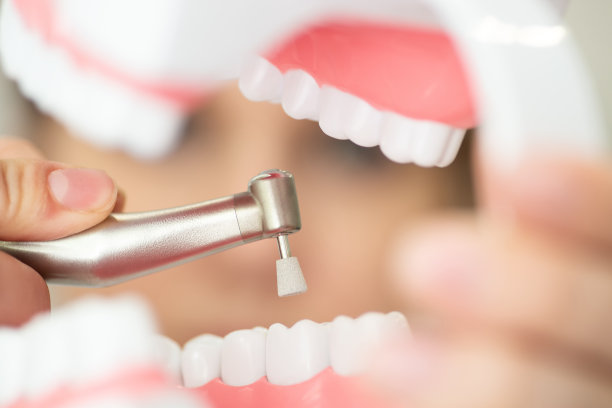Summary: Dental implants present a revolutionary solution to tooth loss, offering a blend of functional and aesthetic advantages. This article delves into four significant aspects of dental implants: their benefits, the process of implantation, post-operative care, and the psychological boost they provide. Through a comprehensive examination of these factors, we aim to convey how dental implants not only enhance oral health but also build aesthetic confidence, paving the way for a happier and healthier life. With advancements in technology, dental implants have become a reliable option for many, ensuring that patients can maintain their natural smile and enjoy improved quality of life.
1. Advantages of Dental Implants for Oral Health

One of the primary benefits of dental implants is their significant contribution to oral health. Unlike dentures, which can slip and cause gum irritation, implants are securely anchored into the jawbone, preventing the bone loss that often accompanies tooth loss. When a tooth is missing, the surrounding bone can deteriorate due to lack of stimulation. Implants help maintain bone density, contributing to better overall oral health.
Moreover, dental implants provide improved functionality, allowing patients to chew and speak with confidence. For those who have struggled with traditional dentures, the performance of dental implants can be a game-changer. Patients can enjoy their favorite foods again without the worry of their dental appliances shifting or falling out.
Additionally, dental implants are designed to mimic natural teeth in both appearance and function. The titanium post integrates with the jawbone, creating a strong foundation that can handle everyday pressures. This integration helps preserve surrounding teeth as well, reducing the risk of misalignment that can occur when gaps are left unfilled.
2. The Process of Getting Dental Implants
The journey to obtaining dental implants begins with a comprehensive consultation with a dental professional. This stage typically involves imaging techniques, such as X-rays or 3D scans, to evaluate the condition of the jawbone and surrounding tissues. Understanding the individual’s dental and medical history is crucial in determining the best course of treatment.
Once deemed a suitable candidate, the implantation procedure itself is often performed in stages. The first step involves the surgical insertion of the titanium post into the jawbone. After this procedure, a healing period of a few months is necessary, during which the bone fuses with the implant, a process known as osseointegration.
After successful healing, a connector, called an abutment, is placed on top of the implant, followed by the placement of a custom-made crown. This multi-step process ensures that the final product is not only functional but also aesthetically pleasing. Regular check-ups after the procedure help monitor the success and health of the implants, ensuring longevity.
3. Post-Operative Care for Longevity
Post-operative care is crucial for the success and longevity of dental implants. After the procedure, patients are advised to follow specific guidelines provided by their dental professionals. This often includes avoiding hard or chewy foods for a few days, as well as adhering to a proper oral hygiene routine to prevent infections.
Regular dental check-ups are essential to monitor the condition of the implants and surrounding structures. Scaling and professional cleanings can help maintain oral health and enhance the durability of the implants. Frequent assessments will allow dentists to catch any potential issues early, leading to timely interventions if needed.
Furthermore, lifestyle changes, such as quitting smoking and maintaining a balanced diet, play a critical role in the maintenance of dental implants. Educating patients about risks and providing ongoing support enhances the likelihood of long-term success, ensuring that implants remain functional for many years.
4. Psychological and Aesthetic Benefits of Implants
Beyond the physical benefits, dental implants can significantly impact a persons psychological well-being and aesthetic confidence. Individuals who struggle with missing teeth often experience feelings of embarrassment or self-consciousness. By restoring their smile, implants can improve self-esteem and encourage social interaction.
Many patients report a newfound sense of freedom regarding their appearance and ability to engage with others. This boost in confidence can translate into various aspects of life, from personal relationships to professional interactions, enhancing overall quality of life.
Moreover, the aesthetic nature of dental implants contributes significantly to how individuals perceive themselves. Whether its smiling for a photograph or participating in social gatherings, individuals with dental implants can enjoy these moments without fear or hesitation, ultimately enriching their life experiences.
Summary:
The exploration of dental implants reveals how they enhance oral health through improved functionality, retain bone density, and provide an aesthetically pleasing solution to tooth loss. The careful surgical process and essential post-operative care are vital for ensuring the long-term success of dental implants. Beyond physical benefits, implants substantially boost patients psychological well-being and aesthetic confidence, transforming lives holistically.
This article is compiled by Vickong Dental and the content is for reference only.
Vickong Dental
Vickong Dental is a large medical group established in Hong Kong in 2008 by professors from well-known medical universities in Guangdong and Hong Kong, as well as medical doctors from key national '985' universities (including Master's supervisors and senior professors). The chain of branches brings together expert dentists with PhDs and Master's degrees from Hong Kong and Mainland China, committed to providing high-quality dental treatment.
"Vickong Dental Practices the University Motto of 'Healing and Serving Society,' with a Stable Operation for Sixteen Years. It Has Been honored with Hong Kong Enterprise Leaders's Choice,' and is a Global Trusted Implant Center for the Nobel Implant System. Recommended by Hong Kong Metro Broadcast and Guangdong Television, it Serves Customers from Over Thirty Countries and Regions, Gaining the Trust and Favor of Citizens from the Guangdong-Hong Kong-Macau Greater Bay Area and Surrounding Cities.

Thousands of customers' unanimous praise
The most recognized and highly recommended dental service by customers in the Guangdong-Hong Kong-Macau Greater Bay Area
We Ensure You Receive Detailed Care and Attention Here
Hong Kong standards, Shenzhen prices, Your Trusted English-speaking dentists

Vickong Dental Medical-Grade Instrument Disinfection Process
Vickong Dental Medical-Grade Instrument Disinfection Process

Vickong Dental Chain: A Warm and Comfortable Environment for Treatment






Appointment Hours

Q&A
Why choose Vickong Dental?
Vickong Dental practices the university motto 「Medicine to Benefit Society」, with each branch bringing together highly qualified dentists with doctoral and master’s degrees from Hong Kong and the Mainland, and has maintained seventeen years of steady operation。Recipient of 「2024 Hong Kong Enterprise Leaders Brand」, 「2025 Hong Kong Enterprise Leaders Brand」, a Nobel Biocare Global Trusted Implant Center, and a brand recommended by Metro Radio Hong Kong and Guangdong TV。
To date, we have served customers from more than thirty countries and regions,earning exceptionally high word-of-mouth recognition and trusted recommendations from residents across the Guangdong-Hong Kong-Macao Greater Bay Area and surrounding cities
We have eight major branches in Zhuhai、Shenzhen,and a consultation and service assurance center in Hong Kong,so you can book a free consultation at any time for any questions,which is very reassuring.
If I do not accept the quotation after the CT scan, will I be charged??
No! As long as the actual treatment has not started, you will not be charged any fees.
Will there be any additional charges during the treatment process?
No, there won’t be any additional charges. Before treatment begins, we will clearly explain the treatment plan and its corresponding fees. Only after the patient agrees and signs the consent form will we proceed with the dental service.
Can I pay in Hong Kong dollars?
Yes. Vickong Dental accepts payment in Hong Kong dollars. The amount will be converted based on the exchange rate of the day, and the applicable rate will be clearly communicated to you in advance.
Can I reschedule my appointment at any time?
Yes. Please contact us via **WeChat** or **WhatsApp** as early as possible, providing your original appointment time and details, along with your preferred new date and time slot for rescheduling.













